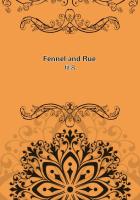Infinite {43}proofs of the strange effects of this poetical invention might be alleged;only two shall serve,which are so often remembered,as,I think,all men know them.The one of Menenius Agrippa,who,when the whole people of Rome had resolutely divided themselves from the senate,with apparent show of utter ruin,though he were,for that time,an excellent orator,came not among them upon trust,either of figurative speeches,or cunning insinuations,and much less with far-fetched maxims of philosophy,which,especially if they were Platonic,they must have learned geometry before they could have conceived;but,forsooth,he behaveth himself like a homely and familiar poet.He telleth them a tale,that there was a time when all the parts of the body made a mutinous conspiracy against the belly,which they thought devoured the fruits of each other's labour;they concluded they would let so unprofitable a spender starve.In the end,to be short (for the tale is notorious,and as notorious that it was a tale),with punishing the belly they plagued themselves.This,applied by him,wrought such effect in the people as I never read that only words brought forth;but then so sudden,and so good an alteration,for upon reasonable conditions a perfect reconcilement ensued.
The other is of Nathan the prophet,who,when the holy David had so far forsaken God,as to confirm *****ery with murder,when he was to do the tenderest office of a friend,in laying his own shame before his eyes,being sent by God to call again so chosen a servant,how doth he it?but by telling of a man whose beloved lamb was ungratefully taken from his bosom.The application most divinely true,but the discourse itself feigned;which made David (I speak of the second and instrumental cause)as in a glass see his own filthiness,as that heavenly psalm of mercy well testifieth.
By these,therefore,examples and reasons,I think it may be manifest that the poet,with that same hand of delight,doth draw the mind more effectually than any other art doth.And so a conclusion not unfitly ensues;that as virtue is the most excellent resting-place for all worldly learning to make his end of,so poetry,being the most familiar to teach it,and most princely to move towards it,in the most excellent work is the most excellent workman.
But I am content not only to decipher him by his works (although works in commendation and dispraise must ever hold a high authority),but more narrowly will examine his parts;so that (as in a man)though all together may carry a presence full of majesty and beauty perchance in some one defectious {44}piece we may find blemish.
Now,{45}in his parts,kinds,or species,as you list to term them,it is to be noted that some poesies have coupled together two or three kinds;as the tragical and comical,whereupon is risen the tragi-comical;some,in the manner,have mingled prose and verse,as Sannazaro and Boetius;some have mingled matters heroical and pastoral;but that cometh all to one in this question;for,if severed they be good,the conjunction cannot be hurtful.Therefore,perchance,forgetting some,and leaving some as needless to be remembered,it shall not be amiss,in a word,to cite the special kinds,to see what faults may be found in the right use of them.
Is it,then,the pastoral poem which is misliked?{46}For,perchance,where the hedge is lowest,they will soonest leap over.
Is the poor pipe disdained,which sometimes,out of Melibaeus's mouth,can show the misery of people under hard lords and ravening soldiers?And again,by Tityrus,what blessedness is derived to them that lie lowest from the goodness of them that sit highest?
Sometimes under the pretty tales of wolves and sheep,can include the whole considerations of wrong doing and patience;sometimes show,that contentions for trifles can get but a trifling victory;where,perchance,a man may see that even Alexander and Darius,when they strove who should be cock of this world's dunghill,the benefit they got was,that the after-livers may say,"Haec memini,et victum frustra contendere Thyrsim.
Ex illo Corydon,Corydon est tempore nobis."{47}
Or is it the lamenting elegiac,{48}which,in a kind heart,would move rather pity than blame;who bewaileth,with the great philosopher Heraclitus,the weakness of mankind,and the wretchedness of the world;who,surely,is to be praised,either for compassionately accompanying just causes of lamentations,or for rightly pointing out how weak be the passions of wofulness?
Is it the bitter,but wholesome iambic,{49}who rubs the galled mind,****** shame the trumpet of villany,with bold and open crying out against naughtiness?
Or the satiric?who,"Omne vafer vitium ridenti tangit amico;"{50}
who sportingly never leaveth,until he make a man laugh at folly,and,at length,ashamed to laugh at himself,which he cannot avoid without avoiding the folly;who,while "circum praecordia ludit,"giveth us to feel how many headaches a passionate life bringeth us to;who when all is done,"Est Ulubris,animus si nos non deficit aequus."{51}















